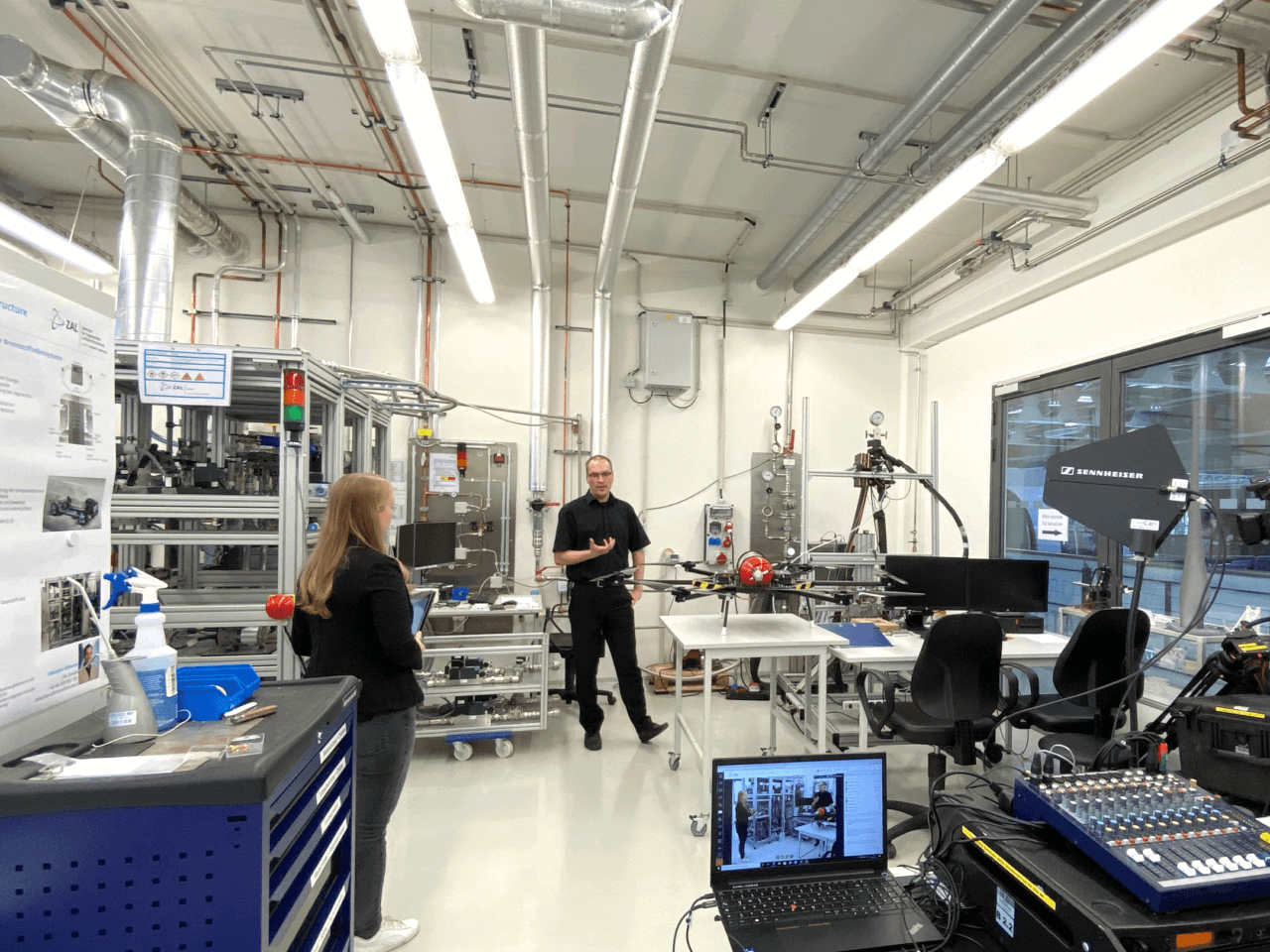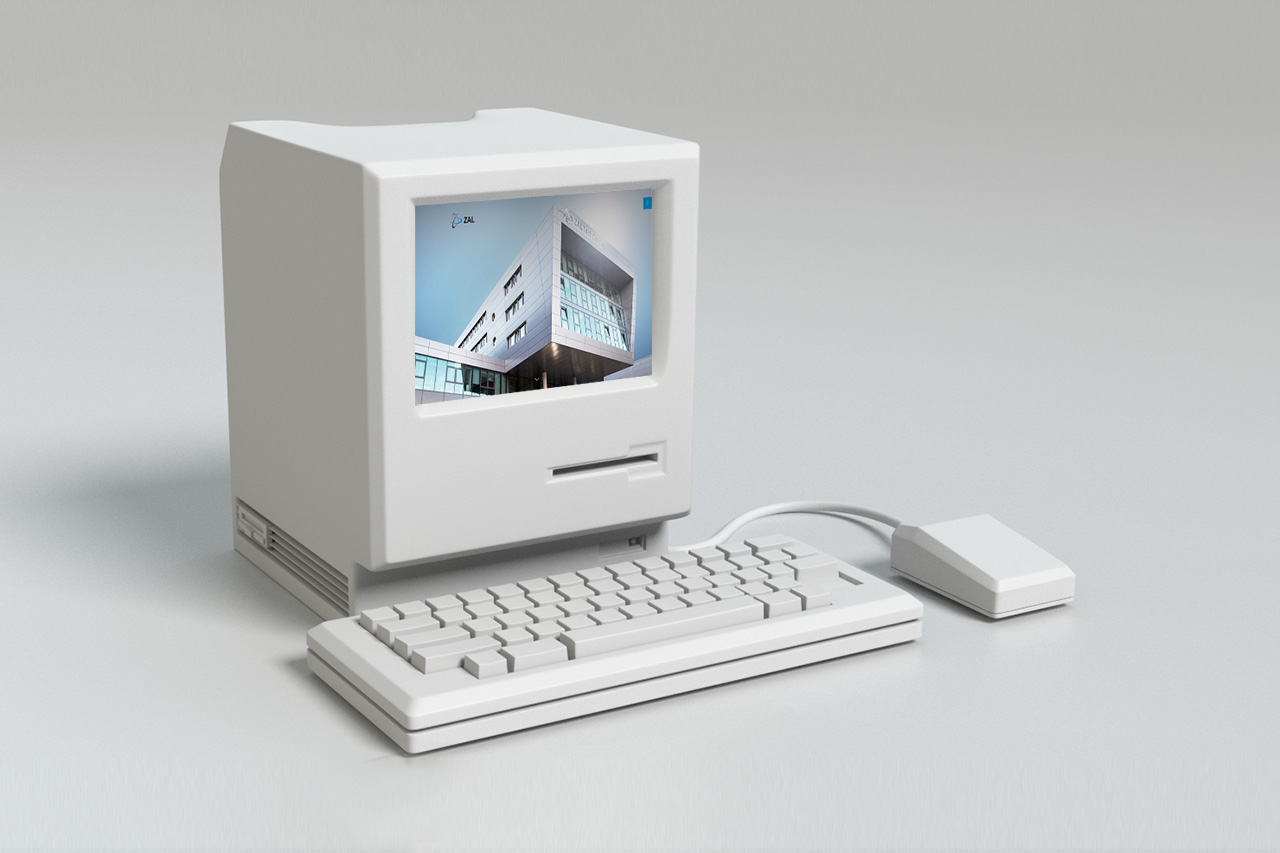Hydrogen: Tomorrow’s promising fuel is currently one of the key topics in the aviation industry. Under the banner “Away from fossil fuels, towards low-emission flying”, Hamburg’s aviation players are working on new flight concepts and technology roadmaps. The ZAL TechCenter is an important meeting place, as the infrastructure there offers partners the perfect platform for research and exchange.
Hydrogen was also the focus of the ZAL Discourse “Flying Green Tomorrow” on May 18. In a technical introduction, Holger Kuhn, hydrogen expert at ZAL GmbH, first gave a general overview of renewable energies and what is involved in the use of hydrogen. He also introduced the new hydrogen tank that was recently inaugurated at ZAL.
The virtual audience then moved on to the so-called ZAL TechLab. Here, the second hydrogen expert of ZAL GmbH, Dr. Sebastian Altmann, demonstrated the topic of infrastructure directly on site. One of them can be seen on the right side of the picture: the ZALbatros, a hydrogen-powered drone developed by ZAL GmbH with more than two hours of flight time. In addition to the drone, both the presentation and the Q&A that followed had a special focus on the energy density of batteries vs. fuel cells.
The following contribution about Airbus’ ZEROe mission came from Tanja Neuland. In it, she explored the question to which extent hydrogen can be considered a universal solution for aviation. To this end, she described, among other things, the required aircraft technologies, but also referred to the challenges that Airbus must overcome to achieve the goal it has set itself – climate-neutral flying by 2035.
The event concluded with a presentation by Dr. Johannes Hartmann, an engineer at DLR’s Institute for System Architectures in Aviation and project leader of the concept study for eco-efficient flying. He described the cooperation between the various DLR institutes in the 4-year EXACT project. The goal of this project is to identify aircraft concepts and basic technologies for climate-neutral flying and to define corresponding technology roadmaps.
The event was rounded off by a lively exchange with the almost 200 guests, who were able to address their questions directly to the speakers.





